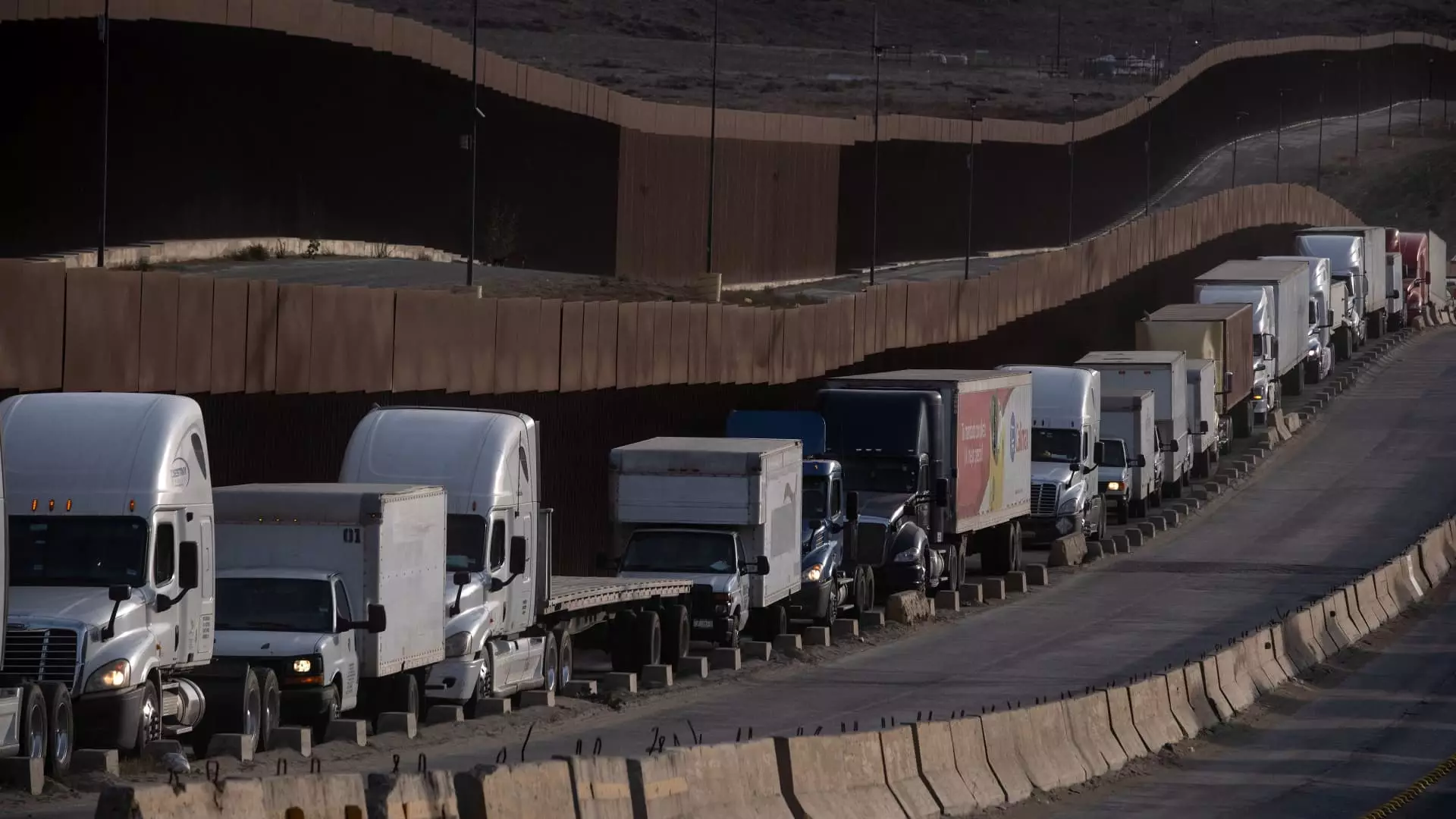The introduction of tariffs by President Donald Trump on core trading partners such as Mexico, Canada, and China has ignited considerable debate regarding its potential economic fallout on U.S. businesses. While certain sectors might benefit from protective measures, a plethora of industries that rely on imports and collaborative supply chains face substantial obstacles. The predictions surrounding the broader economy vary; analysts express concern that these tariffs could stifle U.S. economic growth and exert upward pressure on inflation, negatively impacting consumer spending and overall market stability.
As a notable illustration, financial firm Goldman Sachs anticipates that the imposition of tariffs on Mexico and Canada could bring about a 0.7% rise in core pricing indices and incur a 0.4% decline in the nation’s Gross Domestic Product (GDP). Such consequences signal a complex web of economic interactions influenced by the tariffs, heightening the urgency for businesses to adapt to evolving market conditions.
U.S. companies deeply intertwined with international supply chains, especially in retail sectors, stand to face considerable strain due to the impending tariffs. The challenge isn’t limited to multinational corporations; even local brands are increasingly becoming ensnared in the tariffs’ ramifications. For instance, U.S. fashion retailers sourcing a significant portion of their materials and products from affected countries could experience marked disruptions.
Analyzing specific companies, the case of Boot Barn offers insight into the possible vulnerability to these tariffs. Approximately 30% of its production is derived from China, while 25% originates from Mexico, as noted by analyst Christopher Nardone from Bank of America. This dual exposure places Boot Barn in a precarious position, illustrating how tariffs can reverberate through a company’s operational model, leading to elevated production costs and reduced competitiveness.
The automotive sector emerges as another focal point of concern under Trump’s tariff regime. U.S.-based automakers such as Ford and General Motors confront severe challenges as a result of these tariffs; they manufacture a significant portion of their vehicles in Mexico and Canada. The ramifications could extend well beyond production costs to influence sales strategies and consumer pricing.
Austan Goolsbee, the president of the Federal Reserve Bank of Chicago, reflected on the palpable anxiety expressed by executives within the auto industry, comparing the Midwest’s automotive landscape to “the Saudi Arabia of the auto industry.” With rising concern over profit margins and pricing strategies, automakers are forced to consider potential shifts in consumer behavior stemming from increased retail prices due to tariffs. Analyst John Murphy has indicated that if tariffs prove to be prolonged, the automotive value chain may endure extreme stress, underlining the critical need for improved foresight in supply chain management.
The ramifications of tariffs do not stop at clothing and automobiles; the alcoholic beverage industry is particularly vulnerable as well. The United States varies widely in its imports of beers and spirits, with a staggering 83% of beer imports and nearly 50% of spirits imports coming from Mexico. Analysts highlight that brands such as Constellation Brands and Diageo could face margin pressures as tariffs threaten profit margins in a highly competitive market.
Nadine Sarwat, an analyst at Bernstein, affirmatively stated that Constellation, which commands the licensing rights for renowned brands like Corona and Modelo in the U.S., is positioned as one of the most at-risk companies amidst these tariff discussions. If consumer prices rise as a consequence of the tariffs, it could accelerate inflationary pressures that ultimately lead to a squeeze on lower-income consumers—an already precarious segment of the market.
As President Trump’s tariff policies loom over major trading partners, the landscape for U.S. businesses grows increasingly uncertain. Both consumer-focused companies and traditional industries like automotive and beverage manufacturing are on the frontline of this economic shift. The resulting complexities affirm that while some businesses may seek refuge under the protective umbrella of tariffs, many others will struggle to navigate the turbulent waters of heightened costs, fluctuating consumer confidence, and market volatility. The broader implications for the U.S. economy warrant close monitoring as businesses brace for potential challenges ahead.

